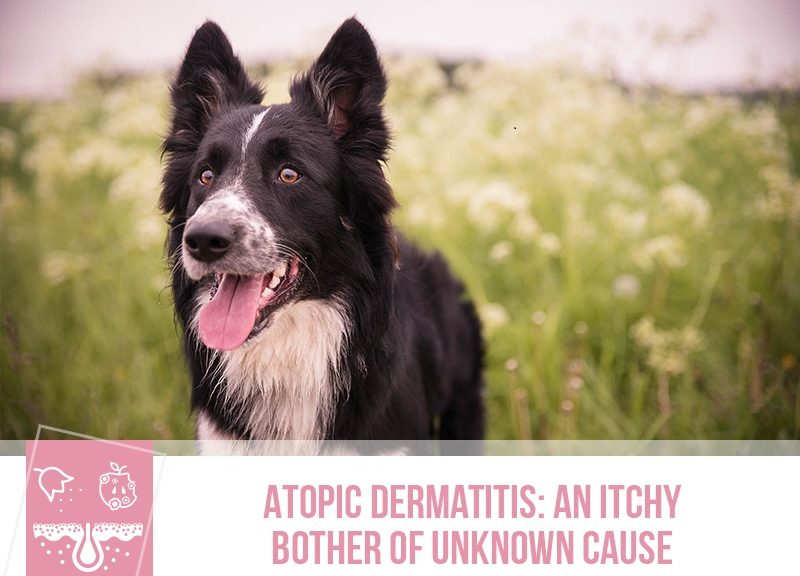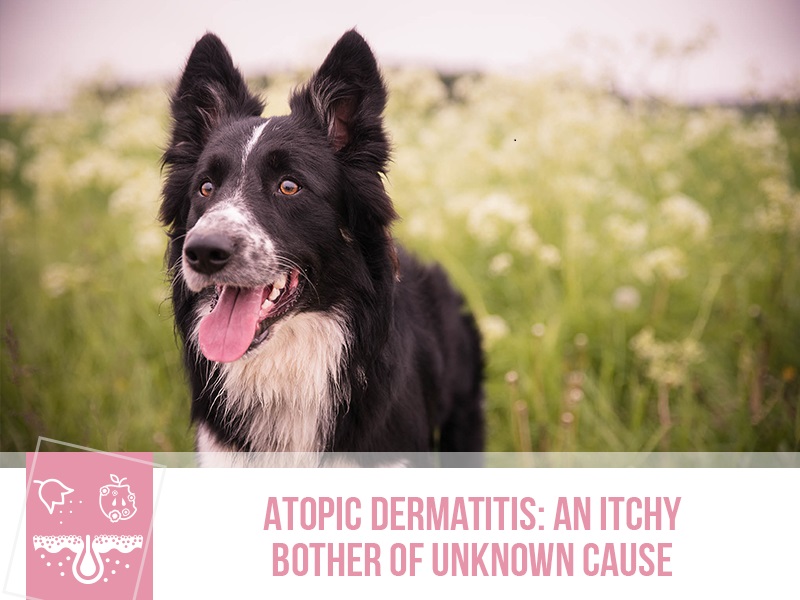Atopic dermatitis is a skin disease of dogs and cats, but for our pooches, it’s one of the most common allergic skin diseases right alongside flea bite hypersensitivity.
I’s estimated to affect in about 3 to 15% of the canine population and it occurs due to an exaggerated response to environmental factors and substances that are usually no bother like pollens, moulds, mites and many other things.
In dogs, we believe that it’s an inherited predisposition and while it can show up anywhere in the world and in every dog, some breeds might be more predisposed to developing this condition than others. Because this allergy relates to environmental factors, different breeds might be affected differently.
In the UK, these breeds are:
- Boxer;
- German Shepherds;
- Labrador and Golden Retrievers;
- Many breeds of terrier but especially West Highland White Terriers and Staffordshire Bull Terriers
Of course, having a pooch of any of these breeds won’t mean they will have atopic dermatitis but it is a risk factor.
What to expect from a dog that has this condition? A *lot* of itching!
There are a lot of different degrees of severity to it and may even be a seasonal issue but the chief complaint is intense itching, scratching and even injuries due to self-induced trauma. Recurrent otitis and conjunctivitis might also happen.
The areas that are the most likely to be affected are in between toes, muzzle, around the eyes, axilla, ears and groin. You can find your pet scratching or trying to get to these areas a lot and there might be little hair there, bumps on the skin or a reddened or thick skin.
Unfortunately, without adequate management, it is usually quite likely to get worse. Not only worse in terms of being itchier and maddening for your pet but secondary infections with bacteria and yeast can show up to make matters worse.
If you see your pet with very intense and recurrent itch, foul smelling ears, loss of hair and red skin take them to the vet! While it cannot be cured, there is therapy that can afford great quality of life to your furry friend.
Would you like to know more about cats and dogs? Check our Feline and Canine Courses:

